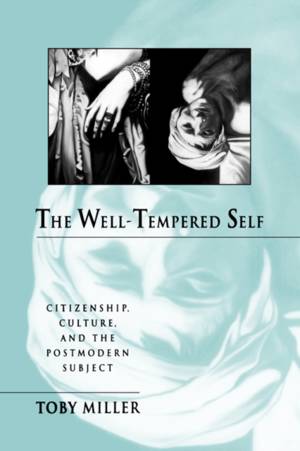
- Retrait gratuit dans votre magasin Club
- 7.000.000 titres dans notre catalogue
- Payer en toute sécurité
- Toujours un magasin près de chez vous
- Retrait gratuit dans votre magasin Club
- 7.000.0000 titres dans notre catalogue
- Payer en toute sécurité
- Toujours un magasin près de chez vous
Description
In The Well-Tempered Self, Toby Miller argues that the modern capitalist state musters a variety of cultural forces to send deliberately mixed messages about the nature of citizenship and the self. The process creates ideal citizens: "cultural subjects" trained to meet the conflicting needs of the political and economic systems. Miller contents that capitalism's democratic politics requires selfless, community-minded citizens, white its economics depends on selfish, utilitarian consumers. To fulfill these conflicting needs for political order and economic prosperity, powerful cultural forces are employed to instill a sense of "ethical incompleteness." Citizens are then offered political, cultural, and economic opportunities to become better, happier, and more fulfilled--opportunities that, in turn, encourage loyalty to both the political and economic systems. In a series of case studies that demonstrate this process, Miller examines mass enternationment, political discourse, and methods of resistance to these powerful cultural forces.
Spécifications
Parties prenantes
- Auteur(s) :
- Editeur:
Contenu
- Nombre de pages :
- 320
- Langue:
- Anglais
- Collection :
Caractéristiques
- EAN:
- 9780801846045
- Date de parution :
- 01-11-93
- Format:
- Livre broché
- Format numérique:
- Trade paperback (VS)
- Dimensions :
- 150 mm x 228 mm
- Poids :
- 417 g

Les avis
Nous publions uniquement les avis qui respectent les conditions requises. Consultez nos conditions pour les avis.






